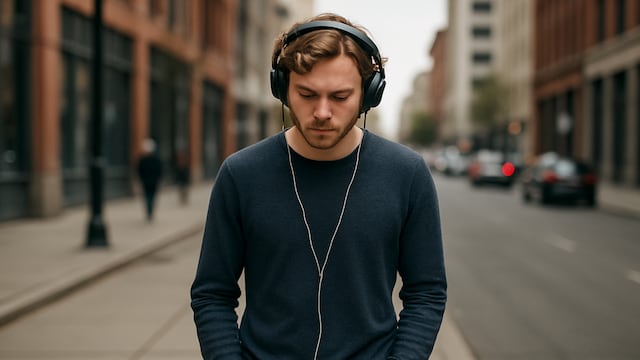With a correlation-causation caveat, there can be some tell-tale signs of a certain eye gaze.

What it means: Psychologists explain why some people look at the ground when walking

Are you one of those people who tends to walk around with your eyes fixed on the ground? Or maybe you know someone who constantly does this. Well, you may not have realised that it can actually tell us something about that person. One common perception is that they may be shy, but psychologists and movement researchers say the answer isn’t that simple, although it can be part of the story. Let’s see what the data says.
Looking down for safety and balance
One of the most practical reasons is straightforward: people look down to avoid tripping. Studies using eye-tracking show that when the ground is uneven, walkers naturally direct their gaze downward to plan their next steps. Researchers at the University of Rochester, for instance, found that people instinctively spend more time looking at the ground when the surface feels unstable, helping them stay balanced and prevent falls.
This understandably becomes even more important for older adults. Experiments have shown that when older people feel anxious about obstacles, they tend to look down earlier and more often, sometimes at the expense of stepping accuracy. So in many cases, downward gaze is less about personality and more about stability.
Ground staring and anxiety
Psychology, however, does plays a role as well. Researchers studying people with social anxiety disorder consistently find patterns of gaze avoidance. In everyday walking tasks, socially anxious participants were more likely to look away from others – often toward the ground – compared with non-anxious peers.
Other studies of social situations, even outside walking, show the same thing: people who fear negative evaluation often avoid eye contact, instead glancing down or away. It’s used like a shield to avoid unwanted interaction.
Habit or style drives eyes downwards
Of course, not everyone who looks down is nervous or cautious. Psychologists note that it can also just be habit. Some people naturally focus inward while walking, lost in thought, not paying much attention to their surroundings. Cultural norms matter too. In some societies, avoiding eye contact is a sign of respect, not anxiety.
Clearly in modern societies there is a new factor: the cell phone. Many people can’t seem to take their eyes of the small screen, even if crossing a road or walking by a cliff. So, looking at the ground or looking down at your phone, safety and personality play a factor.
Related stories
Get your game on! Whether you’re into NFL touchdowns, NBA buzzer-beaters, world-class soccer goals, or MLB home runs, our app has it all.
Dive into live coverage, expert insights, breaking news, exclusive videos, and more – plus, stay updated on the latest in current affairs and entertainment. Download now for all-access coverage, right at your fingertips – anytime, anywhere.
Complete your personal details to comment